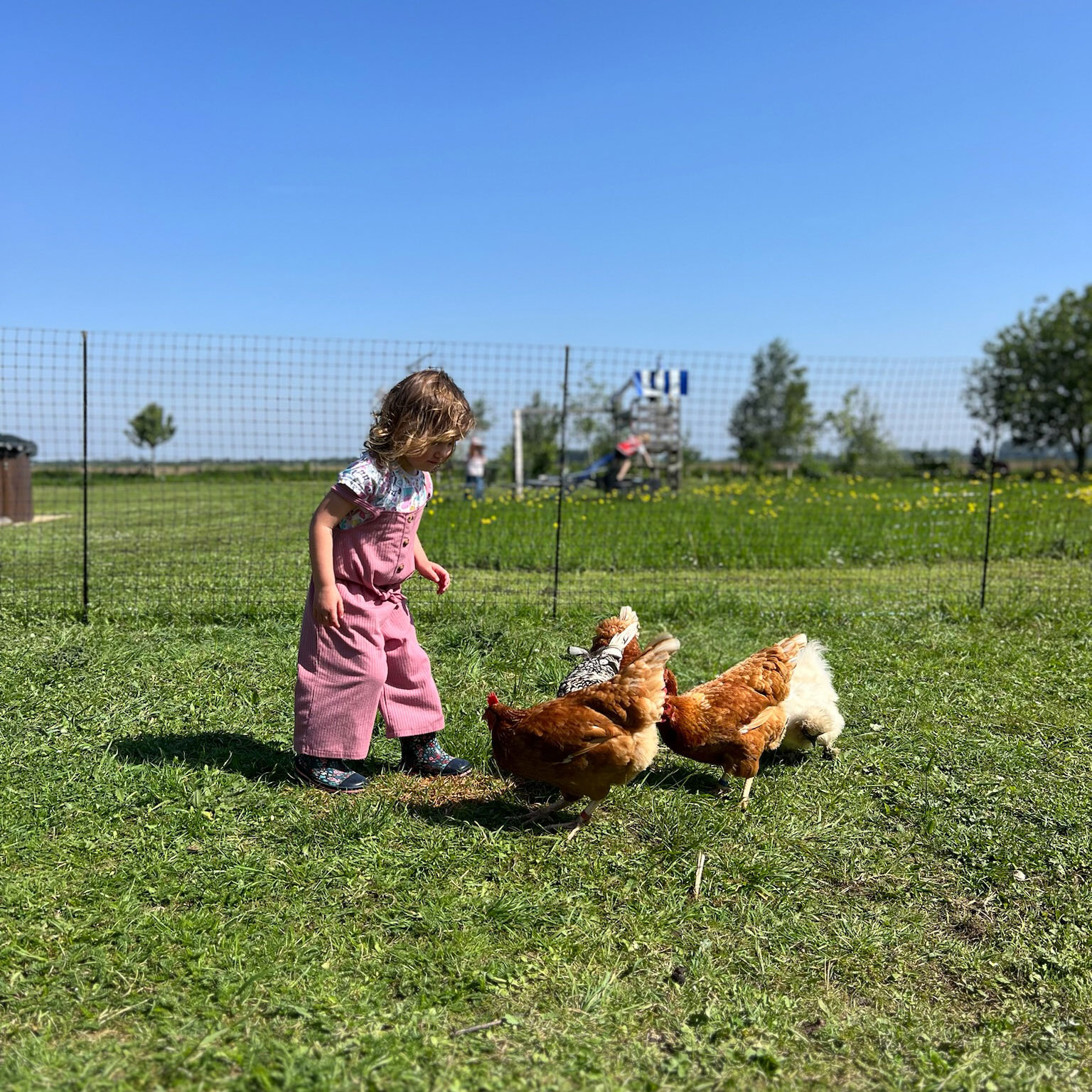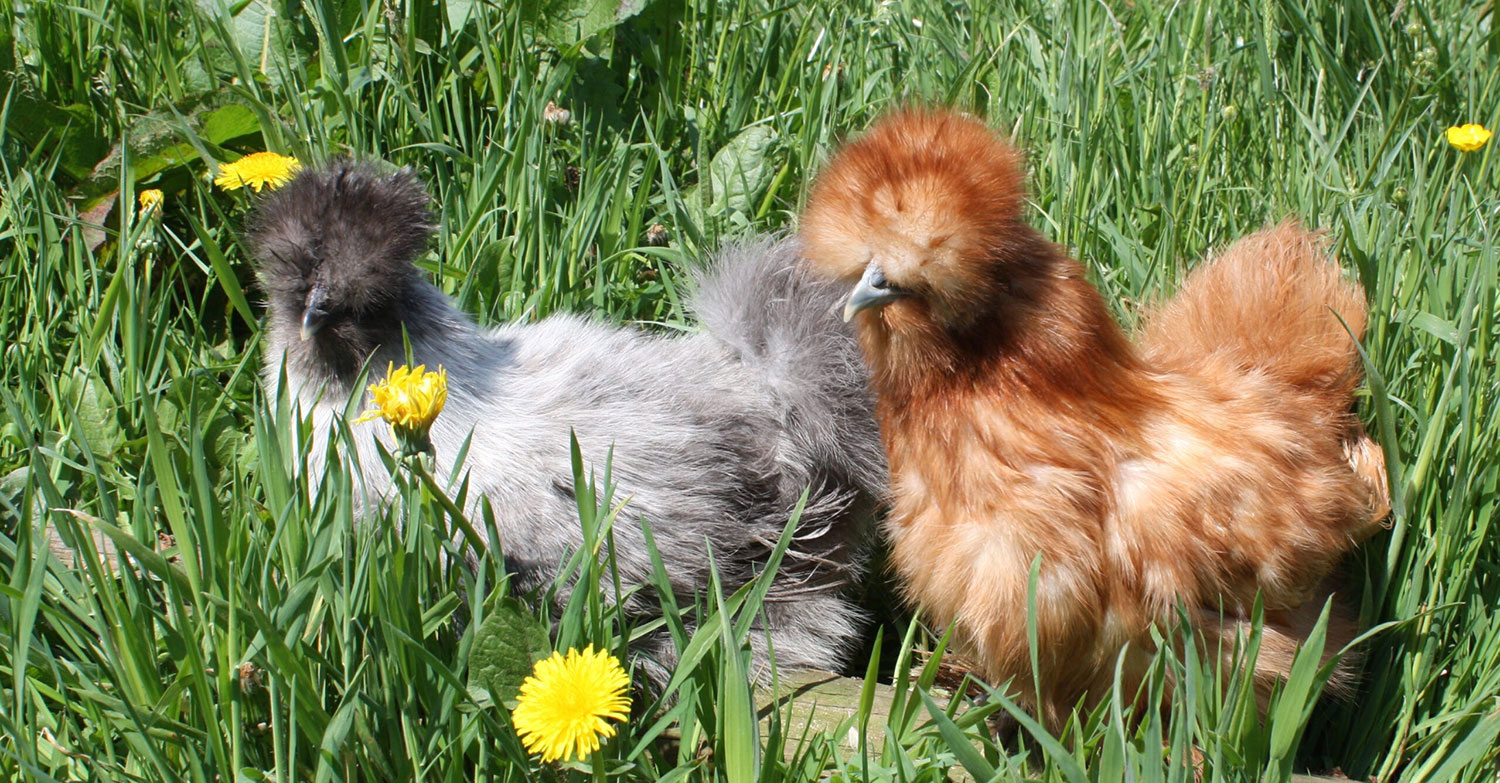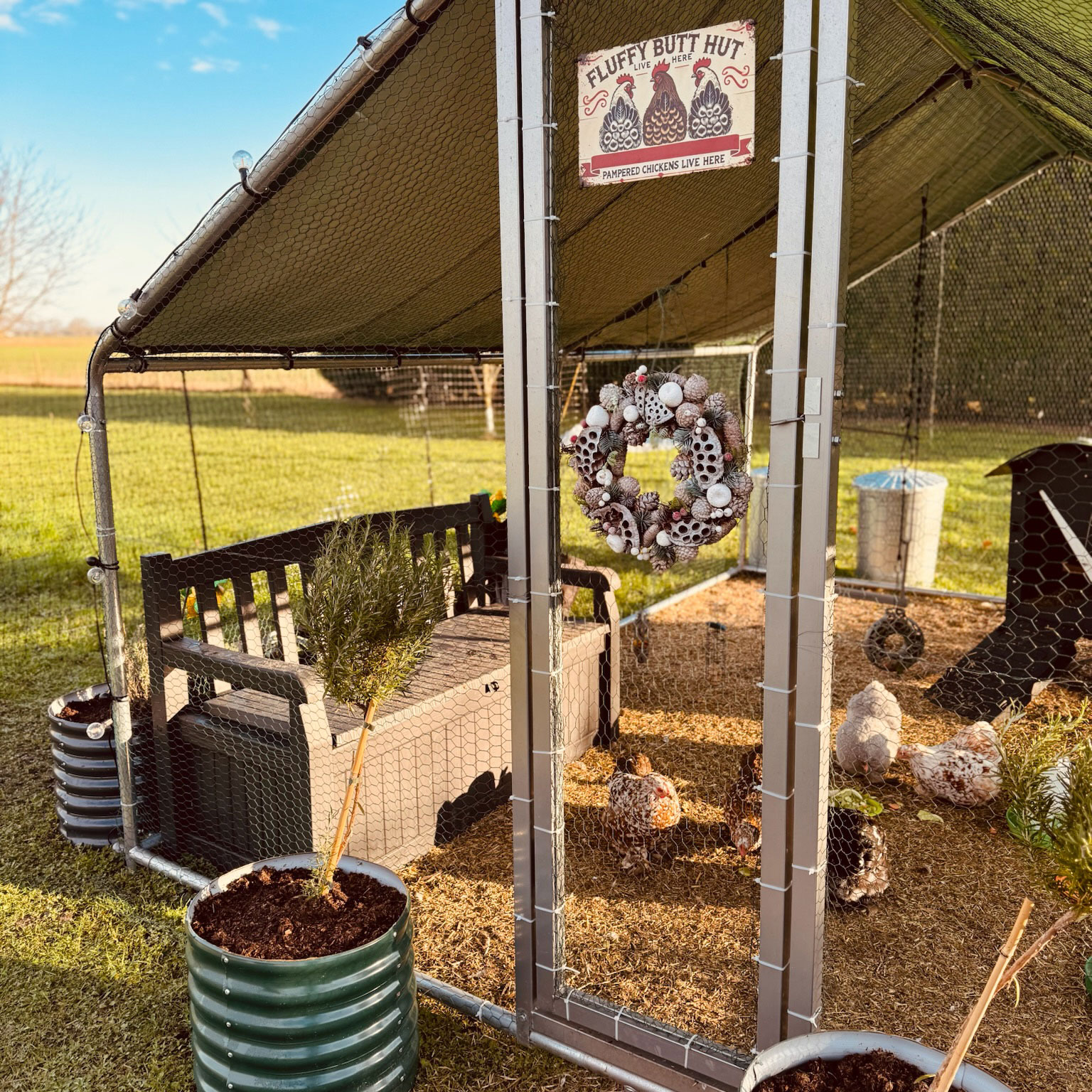


How to Keep Chickens Warm in Cold Weather: Winter Care for Happy Hens
As the days grow shorter and the chill creeps in, it’s time to think about how to keep your flock comfortable through the colder months. Chickens are far hardier than many people realise, but even the fluffiest hens need a bit of extra care when temperatures drop. With the right setup, feeding routine, and housing, your hens will stay snug, healthy, and happily laying all winter long.
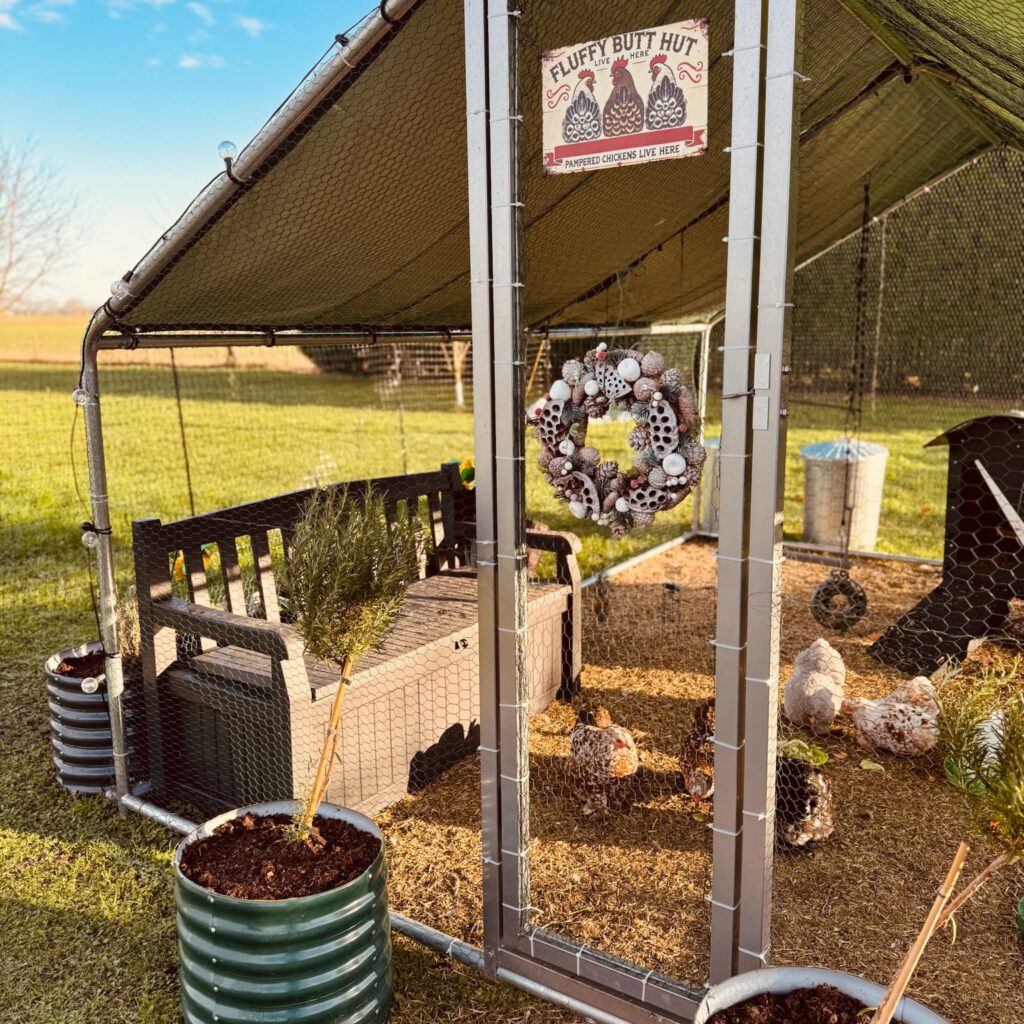
Do Chickens Feel the Cold?
Yes, but not in the same way we do. Chickens are naturally equipped with feathers that trap body heat, and they can fluff themselves up to create their own cosy insulation. Most breeds cope well with typical British winters, even when the frost sets in. What they don’t like, however, is dampness or draughts. Moisture and wind chill are the biggest culprits for illness in winter flocks, far more so than the temperature itself.
Preparing a Chicken Coop for Winter
Start by giving your coop a thorough clean before the cold weather arrives. Remove all old bedding, disinfect surfaces, and check for any leaks or cracks. A dry, draught-free coop is the foundation of good winter care.
When it comes to insulation, you don’t need anything fancy. A layer of fresh straw or wood shavings works brilliantly. It keeps the floor dry, absorbs moisture, and gives your hens a soft, warm place to roost. In very cold spells, adding an extra layer of bedding or using the deep litter method can help create natural warmth from the composting process beneath.
Avoid blocking ventilation completely. Good airflow prevents condensation, which can lead to damp bedding and respiratory problems. The trick is to allow air to circulate above the chickens’ heads while keeping out direct draughts at perch level.
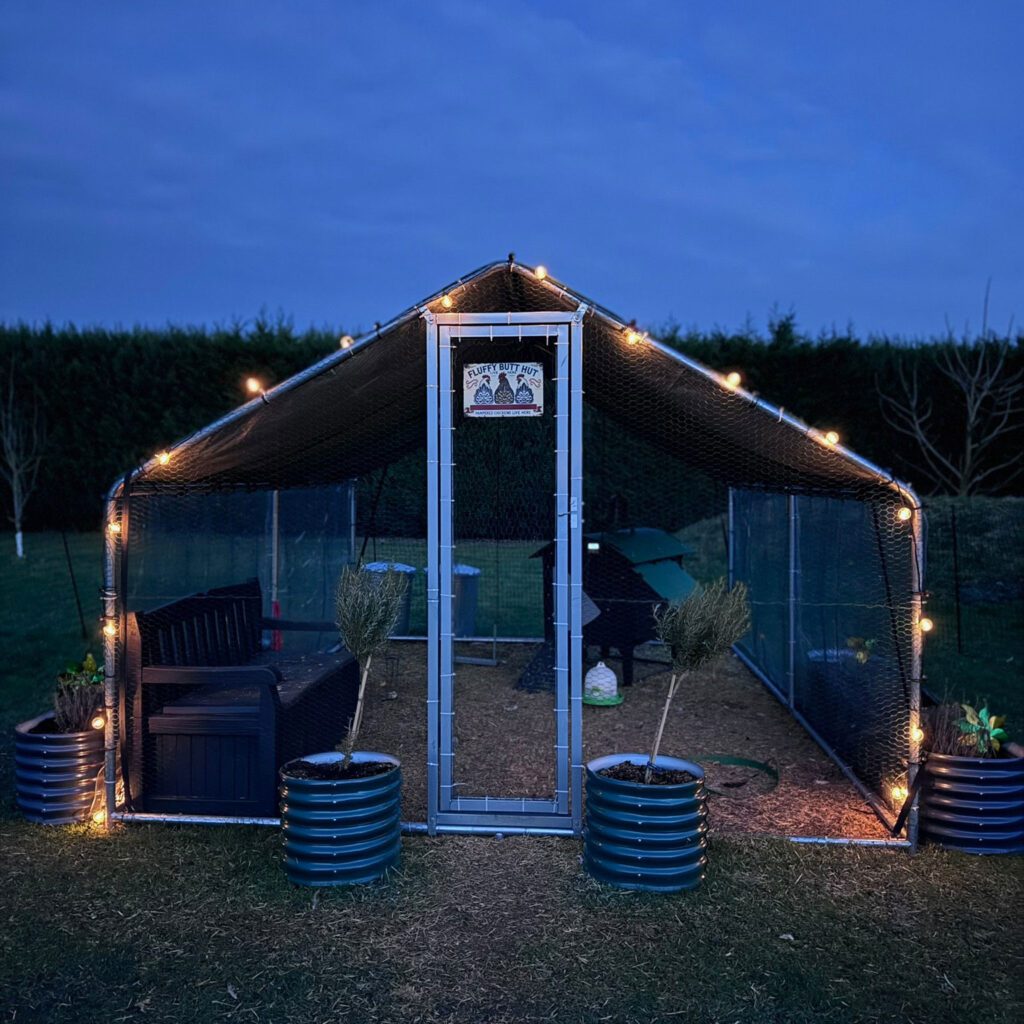
Perches and Positioning
Chickens like to huddle together at night, which helps them share body heat. Make sure your perches are wide enough for them to sit comfortably and cover their feet with their feathers. This helps prevent frostbite on cold nights. Round or narrow perches can leave toes exposed, so a flat wooden perch about 5cm wide is ideal.
If your coop is small or sits directly on the ground, raising it slightly can reduce heat loss and prevent damp rising from the soil.
Feeding for Warmth and Health
A little extra feed can go a long way during the colder months. Chickens burn more calories in winter to maintain body heat, so increasing their rations slightly helps keep them healthy and warm. Offer their usual layers pellets alongside high-energy treats such as mixed corn, which is best given in the late afternoon. As they digest it overnight, it provides a slow release of warmth from the inside.
Access to clean, unfrozen water is also essential. Check poultry drinkers at least twice a day and consider using an insulated or heated base if you live in an area prone to freezing temperatures.
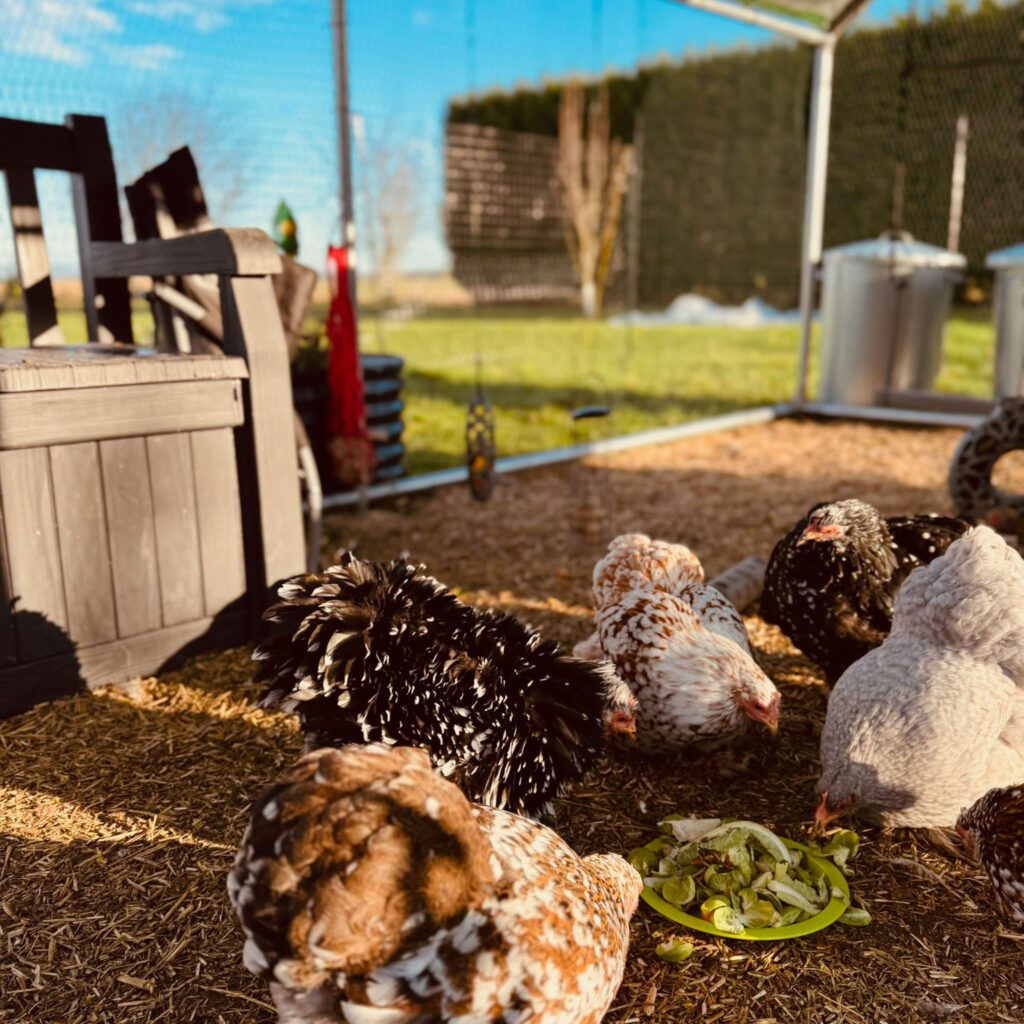
Watch for Winter Health Issues
Colds and respiratory infections like Mycoplasma are more likely to crop up when the air is damp or coops are poorly ventilated. Keep a close eye on your flock for any sneezing, rattly breathing, or watery eyes. If you do notice signs of illness, separate the affected bird, keep her warm and dry, and seek veterinary advice quickly. Products such as Agrivite Poultry Respite Tonic can help support recovery and soothe respiratory distress after infection.
Also keep an eye on combs and wattles in very cold weather. In exposed areas, frostbite can occur, especially in breeds with larger combs. A thin layer of Vaseline or coconut oil applied gently can help provide protection.
Should You Use a Heat Lamp?
It’s tempting to plug in a heater when temperatures drop, but in most cases, it’s unnecessary and even risky. Sudden changes in temperature can make birds more vulnerable to illness, and electrical equipment in coops carries a fire hazard. Healthy hens with good shelter and plenty of bedding do not usually need artificial heat. If you do use one, make sure it’s securely fitted, moisture-proof, and regulated so the coop doesn’t become too warm.
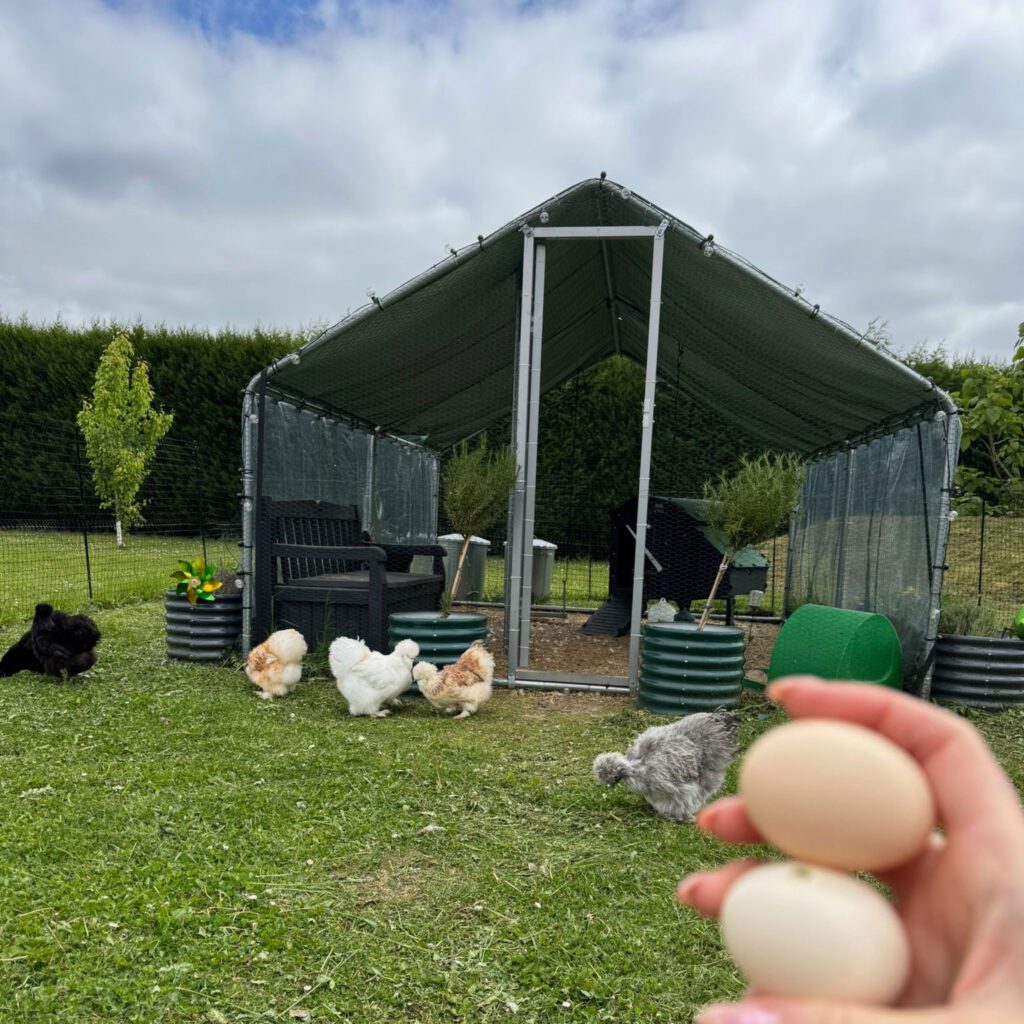
Encouraging Activity During Cold Days
Chickens still enjoy scratching about and foraging in winter, even if they spend more time inside. Scatter a little mixed corn or grain in their run to encourage movement, which helps keep them warm. Hanging leafy greens or treat blocks can also prevent boredom when the ground is frozen.
If your run gets muddy, add straw or bark chippings to keep their feet dry. Wet, cold feet can quickly lead to discomfort and frostbite.
Boosting Immunity and Condition
Winter is the perfect time to add supplements and tonics to your hens’ routine. A product like Agrivite Poultry Respite Tonic can help support the immune system during times of stress, cold, or recovery from respiratory illness. A splash in their drinking water for a few days helps boost their condition and keeps them resilient. Apple cider vinegar (unpasteurised) and porridge such as Forager Winter Warmer Garlic & Herb can also be used occasionally to support gut and respiratory health.
Handling and Care Tips
Try not to handle your chickens too much in cold weather, especially at night when they’re roosting. Their feathers trap warm air, and picking them up can release it. If you do need to examine a hen, do it quickly and gently, then let her settle back in with the flock.
Make daily checks part of your routine. Look for signs of damp, mould, or droppings build-up in the coop, and keep bedding topped up. Small daily jobs make winter chicken keeping much easier and keep your flock thriving right through to spring.
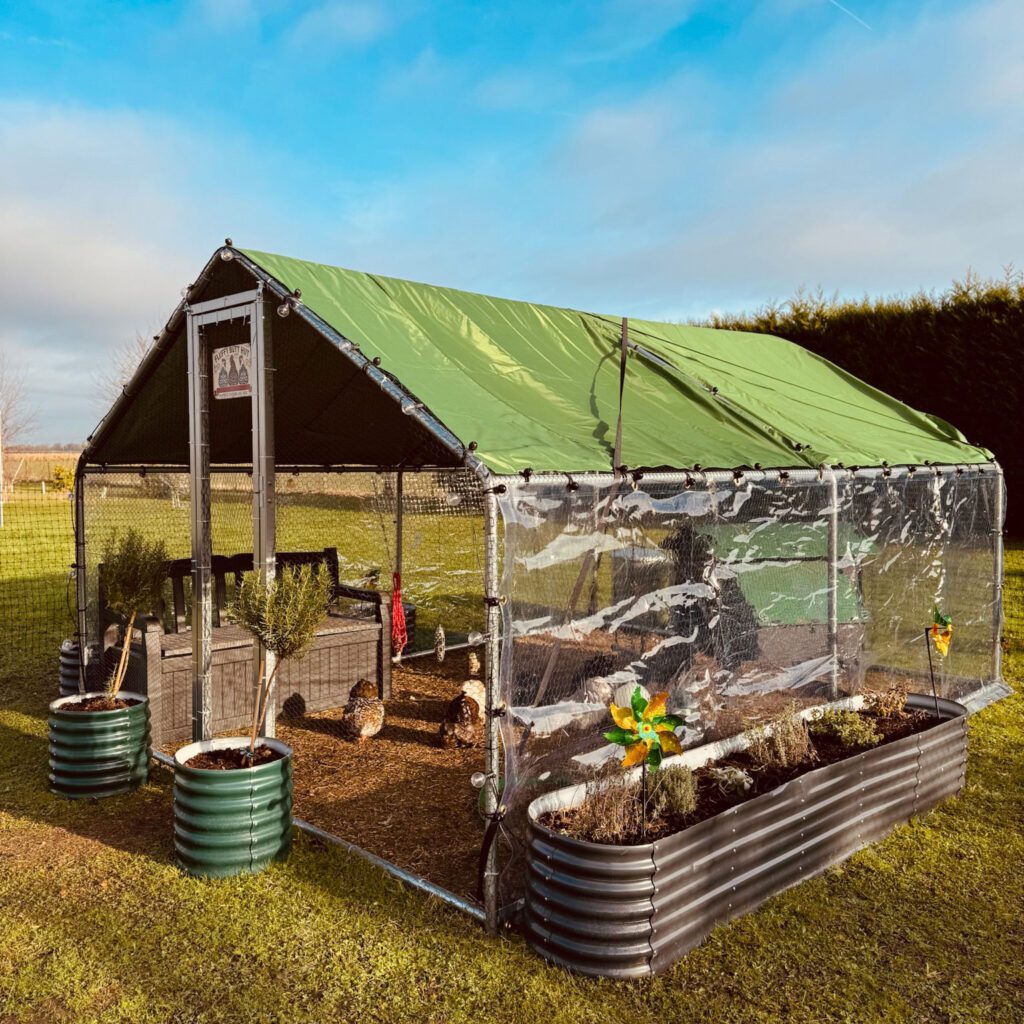
Keeping Your Hens Warm and Well with Pipinchick
Winter doesn’t have to be a worrying time for chicken keepers. With a snug, draught-free chicken coop, a good quality diet, and a few simple care routines, your flock will stay comfortable right through the colder months. The key to warmth is proper care rather than gadgets. A clean, dry environment and a balanced diet do far more to keep your hens happy and healthy than any heater ever could.
Make sure your birds have plenty of nutritious chicken feed to help them maintain energy and condition. If you need to restock before the cold sets in, take a look at our full range of chicken feed and treats to keep their tummies full and feathers glossy. For anyone thinking their coop could use an upgrade, our chicken houses and runs are designed to offer both warmth and ventilation, making them perfect for year-round comfort.
And if your flock needs a little extra support through the winter, our carefully selected chicken healthcare products include tonics, vitamins, supplements and natural remedies to keep your hens in top form.
With the right setup and a touch of daily care, your hens will stay cosy, content, and clucking their way through winter with ease.
Pipinchick are the UK’s number one most trusted pet poultry provider. We deliver happy, healthy chickens safely to your door. All our chickens are reared lovingly by us on our farm in the beautiful Chew Valley, just outside Bristol. Our breeds include Silkies, Bantams, and pure breed chickens as well as a whole range of high quality chicken keeping supplies.

